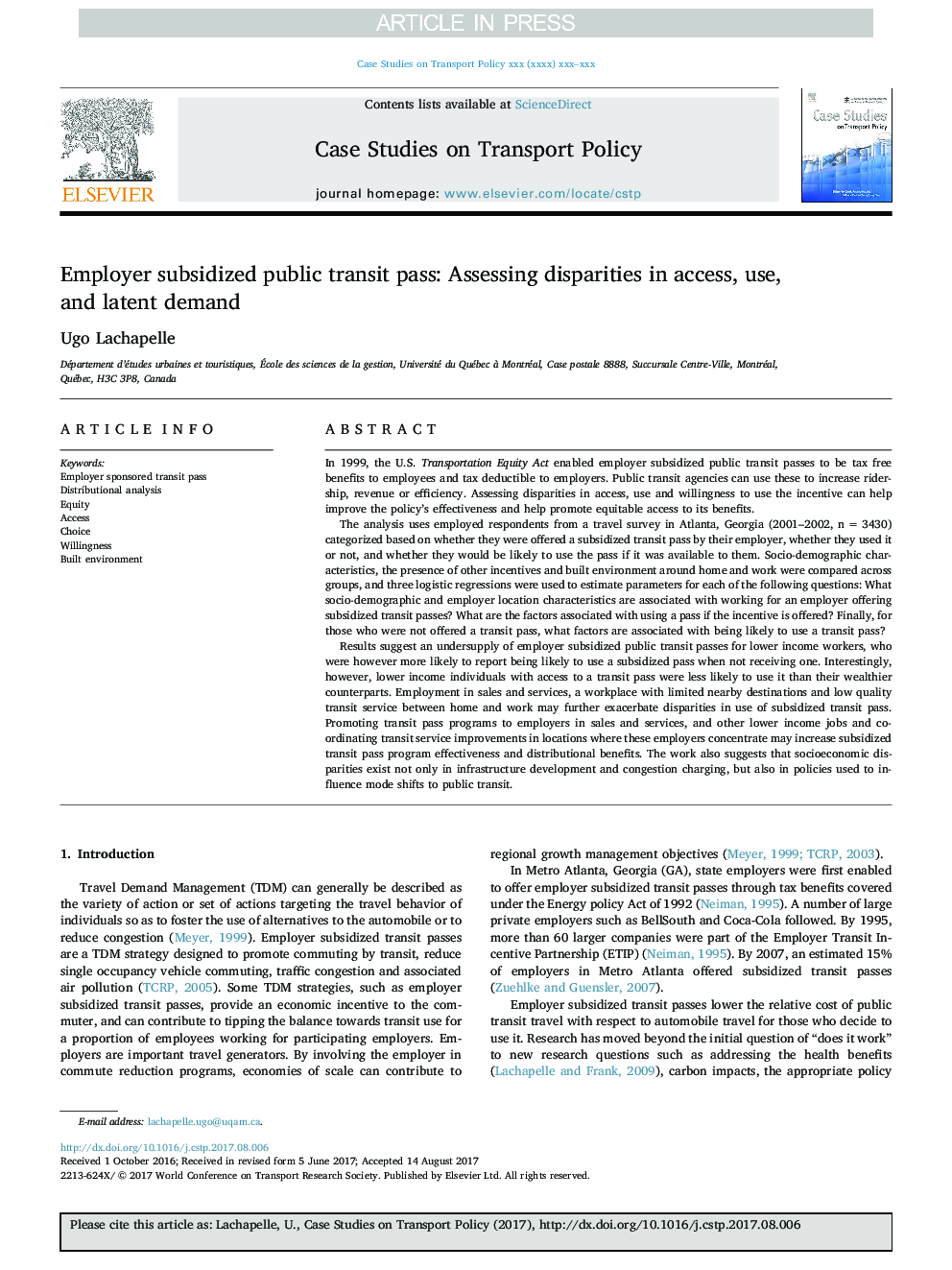| Article ID | Journal | Published Year | Pages | File Type |
|---|---|---|---|---|
| 8941500 | Case Studies on Transport Policy | 2018 | 11 Pages |
Abstract
Results suggest an undersupply of employer subsidized public transit passes for lower income workers, who were however more likely to report being likely to use a subsidized pass when not receiving one. Interestingly, however, lower income individuals with access to a transit pass were less likely to use it than their wealthier counterparts. Employment in sales and services, a workplace with limited nearby destinations and low quality transit service between home and work may further exacerbate disparities in use of subsidized transit pass. Promoting transit pass programs to employers in sales and services, and other lower income jobs and coordinating transit service improvements in locations where these employers concentrate may increase subsidized transit pass program effectiveness and distributional benefits. The work also suggests that socioeconomic disparities exist not only in infrastructure development and congestion charging, but also in policies used to influence mode shifts to public transit.
Related Topics
Physical Sciences and Engineering
Engineering
Civil and Structural Engineering
Authors
Ugo Lachapelle,
